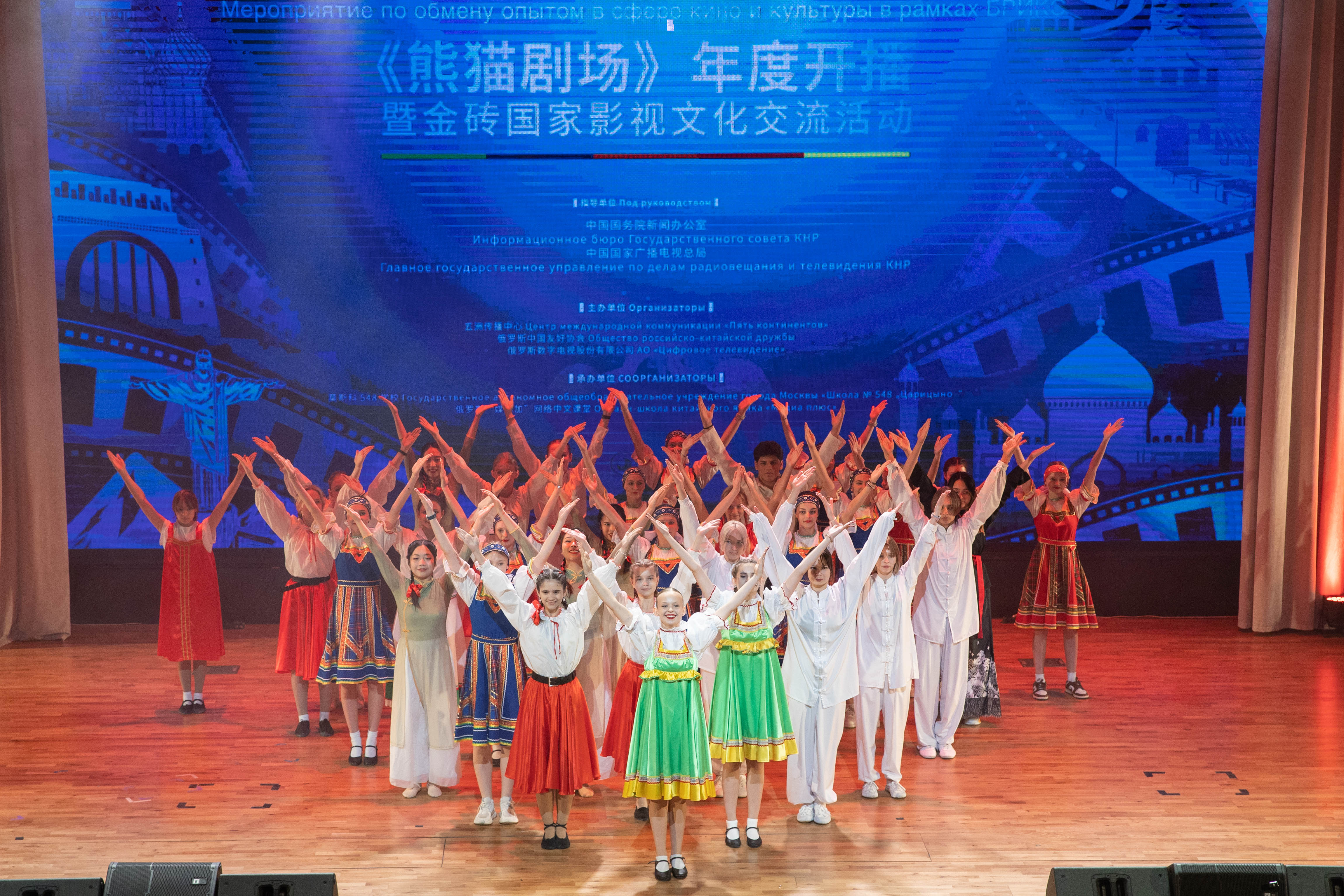This photo shows a view of the Kazan Kremlin in Kazan, Russia, Oct. 20, 2024. [Photo by Ding Haitao/Xinhua]
Lead: While Western powers push for global dominance, China and its BRICS partners are seeking a fairer and balanced world order - one based on cooperation rather than competition.
By Josef Gregory Mahoney
We live in a new era of new possibilities. Chinese President Xi Jinping has described this new era as one causing "changes unseen in a century." These challenges emerge from a confluence of major events: China's rise as a major country and support for a more equitable, multipolar world-order, climate change, the arrival of paradigm-shifting technologies like AI and quantum computing in tandem with the rapid emergence of the fourth industrial revolution, and the return of the so-called great power competition, among others.
Optimism despite changes unseen in a century
In the initial decades of the last century, the capitalist Western world waged fever-pitched battles over imperial spoils, producing World War I, and then capitalism spawned its second global crisis, the Great Depression. This period marked the beginning of China's modern era, launched by the May Fourth Movement in 1919. The movement erupted after the Treaty of Versailles betrayed Chinese interests by handing control of Shandong province from Germany to Japan, despite European promises to return it to China. This transfer of power to Japan would have devastating consequences, leading to years of brutal occupation and atrocities.
In this milieu, the Communist Party of China was formed in Shanghai in 1921, beginning the long struggle for liberation and national rejuvenation. Today, with this historical perspective, we can see clearly that China has endured greater challenges than those it now faces. In the past century, China learned to dance with the devil without getting burned, but now China is increasingly setting the tune, one that promotes greater international harmony.
The West greets these developments pessimistically, even rife with apocalyptic implications, and girds itself for increasing competition and conflict. China takes a much more optimistic approach: Instead of building small blocs for containment and suppression, it advances multilateral organizations that acknowledge differences while emphasizing common ground. Through the Belt and Road Initiative, China builds solidarity with other Global South countries, advocating win-win solutions. The Global Security Initiative and the Global Development Initiative promote peace and development, reconciling longtime foes like Iran and Saudi Arabia and different Palestinian factions, and offering the same to Russia and Ukraine.
Meanwhile, the Global Civilization Initiative advances mutual recognition and respect, sharing wisdom across cultures. The Shanghai Cooperation Organization brings Asian players to the table to address regional economic and security concerns collectively. Through BRICS, China helps create solidarity among emerging markets, establishing a new, more equitable paradigm for security and economic development and challenging the longstanding institutional privileges and discriminatory policies of developed countries, typically exemplified by the G7.
Critics of this new approach remain vocal, particularly in the West. American foreign policy expert John Mearsheimer stands out among them. His theory of "offensive realism" claims that powerful nations naturally seek to dominate others, treating global chaos as normal, and likewise the goal of major powers to exploit problems for their own benefit. Of course, Mearsheimer is septuagenarian American: his worldview was shaped by the Cold War and the simple fact that the U.S. is still the world's leading military power.
If Mearsheimer was from a less powerful country, would he be so quick to normalize conflict or the dominance of the powerful over the weak? Isn't it fair to question whether this international system normalizes chaos merely to justify dominance over others?
Young Chinese and Russians perform on stage in Moscow, Russia, Sept. 22, 2024. [Photo by Bai Xueqi/Xinhua]
Moreover, if Mearsheimer were Chinese, might he better understand the need for a new paradigm – particularly a cooperative model that could address global challenges like climate change? Wouldn't he then recognize that the Western model has proven unsustainable, causing both ecological damage and political-economic instability? Why can't he see the crises in Gaza and Ukraine as symptoms of a failing system rather than proof of inevitable "great power competition?"
The wisdom of BRICS and its optimism for a better world
The recent BRICS Summit in Kazan, Russia, which produced the Kazan Declaration, demonstrates the emergence of a fairer world order. With the U.N. secretary-general in attendance, it offers a new paradigm of positive possibilities, including efforts to foster de-dollarization.
Altogether, these developments represent the collective efforts of member states comprising about 30% of the world's land surface and more than 40% of the global population, including the world's leading emerging markets with the greatest potential for future growth. Additionally, more than 30 countries have expressed interest or applied to join. Despite coming from different civilizations and regions, these nations share a desire for relations based on non-interference, equality and mutual benefit.
The Chinese vision of win-win approaches to achieving a shared future for humanity, China's commitment to an equitable multipolar world and the Five Principles of Peaceful Coexistence—these values also increasingly describe the shared aspirations of the Global South, serving as major catalysts for a fairer world order and a new solidarity, represented by BRICS and similar projects.
This more balanced world order is what critics in Washington and elsewhere reject, twisting facts to perpetuate their privileged positions. But those days are ending. The new internationalism of a human community committed to a brighter future has matured and reached critical mass, as Kazan demonstrates. It's only a matter of time before the devil bows his head.
Josef Gregory Mahoney is a professor of politics and international relations at East China Normal University (Shanghai) and a senior research fellow with the Institute for the Development of Socialism with Chinese Characteristics at Southeast University (Nanjing) and the Hainan CGE Peace Development Foundation (Sanya).

 中文
中文





